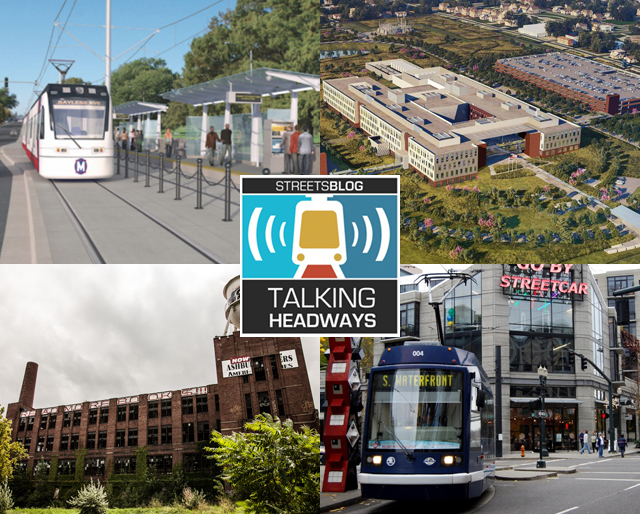This week we’re joined by Linda Samuels, associate professor of urban design at Washington University in St. Louis, to talk about her book "Infrastructural Optimism." We chat about how growth for growth’s sake is not the answer, learn from postmodernist urbanism, and why systems should be more connected.
For those of you who get your news through your eyes and not your ears, there’s an edited transcript below the audio player. If you want a full, unedited transcript (with some typos!), click here. If you want to listen, here you go:
Jeff Wood: There’s an ecological part, but there’s also kind of an economic and sociological part. I want to read something that stuck out to me on Page 220, and I want to get your reaction to this. It’s after I think we discussed the work on the north-south rail in St. Louis, "The continued emphasis on economic development, real estate investment, and access to jobs through transit connectivity, alone, glosses over the structural fault lines in the city. The primary focus on economic development continues to promote an argument that growth is the answer, even in the face of continued discrimination, population loss, abysmal life expectancy and spatial erasure."
Linda Samuels: So one of the arguments that I make repeatedly in the book and in most things that I write is that "growth for the sake of growth" is not the answer to our problems. The idea is that we have to think about what I call measuring what matters, right. Measuring what matters is not just looking at that bottom line. Many of the arguments that have been made about North St. Louis are, if we could just get investment here, if we could just get, and the example that’s happening right now is the National Geospatial Agency, which is a massive federal agency that’s moving into North St. Louis. They have, again, gone through a process of eminent domain and property clearing and displacement, right?
That is an economic win in the eyes of the city council and the mayor. But if you’re measuring what matters, you’re actually measuring the loss of community cohesion, the loss of long-term neighborhood investment, the loss of small businesses, the loss of informal relationships, the loss of a natural habitat, a series of an integrated natural habitats. So, part of that argument is how do we not just look at that economic number as a successful bottom line, but really take it apart and say, well, tax-increment financing is benefiting the business, but that tax money is going somewhere else. Federal investment is benefiting the business, but that federal investment we could really use on that transit line.
So siloing those funds to is detrimental to the social issues that we’re trying to combat in a place like North St. Louis. So that’s sort of the core belief that kind of underpins that idea, that growth for the sake of growth. Isn’t really the answer that everyone thinks it is, and that we’ve been relying on for decades.
Wood: I think that’s a really key point, especially in places like St. Louis or Cleveland or others that have seen continuous decline in population, but there’s not a real way that they’re going to see growth, and the growth that happens seems to be on the periphery or away from the places that maybe need a change of philosophy. So it’s frustrating to see that kind of discussion go, you know, cause all these sunbelt cities there seem to be taking off and they seem to be growing. It seems like the answer for their issues is this economic growth never-ending, but at the same time you have all of these other places that are, I don’t wanna use the word, "stagnant." It seems like a negative connotation, but just, they’re not following in the footsteps of other cities in the Sunbelt or in the west, or even in the east that are, seem to be growing at a breakneck pace.
Maybe that’s a globalization thing. Maybe that’s something related to, I don’t know, but it just seems very disconnected to talk about growth in a city that’s not growing, we’re pushing these low growth cities to think the same way as a high growth city.
Samuels: Absolutely, absolutely — and that we’re measuring them based on the same metrics. You know, you see that when every city wants to be called like the next "innovation city," the next "tech city," and competing for the same populations to come do the same things; it’s kind of strange. There’s some really great aspects to St. Louis and there’s some great possibilities in those cities. Detroit has kind of capitalized on that, right? Detroit has been doing a lot of urban agriculture and so has St. Louis — a lot of urban agriculture, a lot of experimentation; it’s just less expensive to buy property. It’s less expensive to buy buildings. So you have different kinds of experimentation happening in those cities and the overhead is lower and the potential for gain by creating new kinds of economies.
Like there’s some really interesting things happening in St. Louis right now around trying to revitalize the original Black Wall Street. There’s some new financial structures around green lining, which is a kind of antidote to red lining. You know, how do we get loans in the hands of people who weren’t necessarily enfranchised and traditional mortgage structures so they can stay in their homes?






